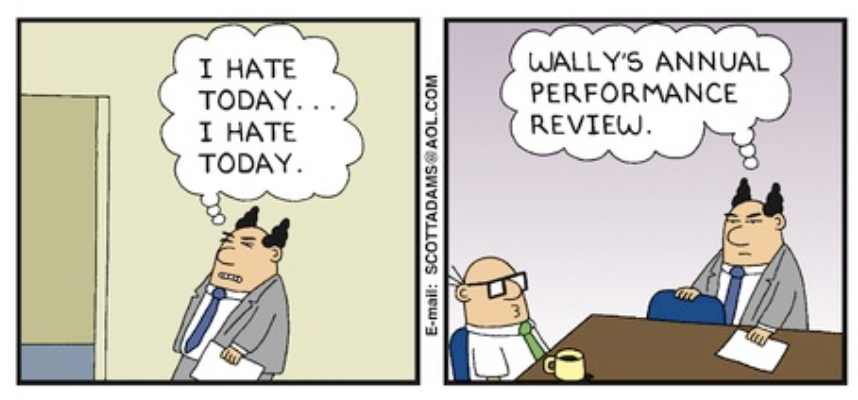
Everyone, ICs and managers alike, complains about review season because it’s more work on top of an already busy schedule. Personally, I have to be in a particular mood to write, just like I have to be in a focused mindset to code. When I’m spent at the end of a meeting-full day, it’s near impossible to be in the right mindspace; as a result, I almost always write my reviews over the weekend, when it’s a guaranteed ping-free day. But that’s not why reviews are actually painful.
Review writing doesn’t have to be difficult. Performance review season is a time to celebrate recent accomplishments and constructively address what is in the way of being even more successful. Delivering constructive feedback is really, really hard. We have to distill complex situations and human interactions into a handful of words. We already know it won’t come close to capturing the full context, but we, your dear managers, labor for hours to choose the clearest and kindest way to phrase tough conversations. No normal human likes delivering bad news, aka inflicting emotional harm, onto another human. It is uncomfortable and unnatural and because we are naturally empathetic, this makes review writing painful. For example, how do you tell someone that their peers do not enjoy working with them?
But, it’s all more than worth it. Yesterday, while reading peer feedback for one of my direct reports, I teared up. Someone was praising her phenomenal work in the last six months and it made me absolutely overjoyed. As a manager, I deeply want my team members to surpass their potential. I wish every single one of my reviews was only a celebration, but that’s conducive for neither the company nor the individual.
So, both ICs and managers, let’s embrace review season with an open mind. We managers are not here to make anyone feel bad, and we are not making these suggestions in isolation. We’re made out to sound like the bad guys, but we’re actually the good guys. We really freakin’ care.